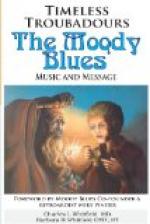[53]
CHAPTER V
THE CLASSICAL PERIOD
We now reach a group of three troubadours whom Dante[21] selected as typical of certain characteristics: “Bertran de Born sung of arms, Arnaut Daniel of love, and Guiraut de Bornelh of uprightness, honour and virtue.” The last named, who was a contemporary (1175-1220 circa) and compatriot of Arnaut de Marueil, is said in his biography to have enjoyed so great a reputation that he was known as the “Master of the Troubadours.” This title is not awarded to him by any other troubadour; the jealousy constantly prevailing between the troubadours is enough to account for their silence on this point. But his reputation is fairly attested by the number of his poems which have survived and by the numerous MSS. in which they are preserved; when troubadours were studied as classics in the thirteenth and fourteenth centuries, Guiraut’s poems were so far in harmony with the moralising tendency of that age that his posthumous reputation was certainly as great as any that he enjoyed in his life-time.
Practically nothing is known of his life; allusions in his poems lead us [54] to suppose that he spent some time in Spain at the courts of Navarre, Castile and Aragon. The real interests of his work are literary and ethical. To his share in the controversy concerning the trobar clus, the obscure and difficult style of composition, we have already alluded. Though in the tenso with Linhaure, Guiraut expresses his preference for the simple and intelligible style,




